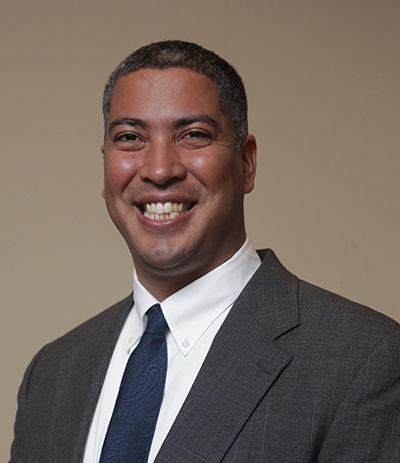Written by Rafael E. Luna, Ph.D.
Executive Director, National Research Mentoring Network
NRMN provides access to the Invisible College
The invisible college, a network of successful scientists working to help each other and mentor the next generation of investigators, has been in operation for centuries serving to promulgate and advance the frontiers of science. Given the low numbers of underrepresented minorities in the biomedical research workforce, is it possible to usher in a new generation of scientists to the Invisible College in order to accurately reflect the population demographics of the United States?
 I first encountered the Invisible College early in my career as a student, having been fortunate to find a mentor that encouraged me to pursue my doctoral degree in the biomedical sciences. I was mentored in the art of scientific writing, methodology and experimentation.
I first encountered the Invisible College early in my career as a student, having been fortunate to find a mentor that encouraged me to pursue my doctoral degree in the biomedical sciences. I was mentored in the art of scientific writing, methodology and experimentation.
He spent an inordinate amount of time guiding me, always allowing me to make mistakes and helping me to learn from them. As the first individual in my entire extended family to attend college, I was perplexed upon receiving his generosity.
One day when my mentor and I were working on a manuscript , I looked up from my laptop and stared into his eyes, “Why are you helping me?”
The question took him by surprise and he remained silent for a few moments. He leaned back in his chair and grumbled in his customary demeanor. Then a smile surfaced on his countenance as he stared back at me with an equal amount of intensity.
In an earnest tone he said, “When I was a student, I had similar circumstances. Someone mentored me, which laid the foundation for my success. Hence, I am part of a continuum of scientists helping the next generation. You are entering into this Invisible College, and you are charged to help others.”
I was floored by his response and never hesitated to help others. This was the precise moment in our mentor/mentee relationship wherein I felt that I was part of something bigger than myself. From that day forth, I stopped doubting whether or not I was capable or smart enough to earn a doctorate. I used every academic challenge as an opportunity to persevere and share the lessons I learned with younger mentees. I unearthed the key to succeeding in the biomedical sciences, which is to place one foot in front of the other and connect with as many members of the Invisible College as possible. Unknowingly, I continued along the trajectory, mentoring others and catalyzing their entry into this perennial stream. As I reflect, this has been the most rewarding experience in my research career and these mentees helped me to better understand myself. Together we grew, but they kept me young all the while.
NRMN has laid the infrastructure for thousands of mentees to access to the Invisible College by linking with its members, which will promote diversity and continue the scientific advancement of biomedical research in the United States. We achieve this through strategic synergies among the five NRMN cores: The Administrative Core (AC) at Boston College, which manages the organizational and committee structures of NRMN to ensure growth, sustainability and success in meeting project objectives; The Mentor Training Core (MTC) at the University of Wisconsin—Madison, which serves as a national hub to prepare mentors and mentees in biomedical research through evidence-based training, both in-person and online; The Mentorship and Networking Core (MNC) at the University of North Texas Health Science Center, which actively develops the in-person and online network of mentors and mentees and oversees the development and management of NRMNet.net; The Professional Development Core (PDC) at the University of Minnesota, which disseminates transformative, high-impact professional development programs including a series of grant writing programs designed to help researchers currently planning or working on a grant proposal develop professional skills to master grant proposal basics and accelerate success in obtaining grant funding; and The Research Resources and Outreach Core (RROC) at the Morehouse School of Medicine, which leverages existing Research Centers in Minority Institutions (RCMI) research infrastructure to address needs in mentorship training and support the entry of new scholars across NIMHD funded RCMI institutions.
Thus NRMN opens the doors of the Invisible College not for the select few, but for all.